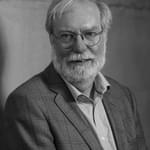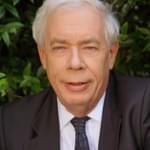Event Recording:
Throughout history, successful societies have created institutions which channel both competition and co-operation to achieve complex goals of general benefit.
These institutions make the difference between societies that thrive and those paralysed by discord, the difference between prosperous and poor economies. In their 2020 book, Greed is Dead, the leading economists Paul Collier and John Kay argue that extreme individualism has today weakened co-operation and polarised our politics, and call for a reaffirmation of the values of mutuality across the social, political and business spheres.
In conversation with Charles Godfray, the authors will develop this argument and explore how the experience of the global pandemic may affect how societies and policymakers view the balance between individualism and mutuality.

Professor Sir Paul Collier
Professor of Economics and Public Policy at the Blavatnik School of Government
Sir Paul Collier is Professor of Economics and Public Policy at the Blavatnik School of Government and a Professorial Fellow of St Antony’s College. From 1998–2003 he took a five-year Public Service leave during which he was Director of the Research Development Department of the World Bank. He is currently a Professeur invité at Sciences Po and a Director of the International Growth Centre.
He has written for the New York Times, the Financial Times, the Wall Street Journal, and the Washington Post. His research covers the causes and consequences of civil war; the effects of aid and the problems of democracy in low-income and natural resources rich societies; urbanisation in low-income countries; private investment in African infrastructure and changing organisational cultures.
Recent books include The Bottom Billion (Oxford University Press, 2007) which in 2008 won the Lionel Gelber, Arthur Ross and Corine prizes and in May 2009 was the joint winner of the Estoril Global Issues Distinguished Book prize; Wars, Guns and Votes: Democracy in Dangerous Places (Vintage Books, 2009); and The Plundered Planet: How to reconcile prosperity with nature (Oxford University Press, 2010); Exodus: How migration is changing our world (Oxford University Press, 2013). His latest book is The Future of Capitalism: Facing The New Anxieties (2018).
In 2014, Paul received a knighthood for services to promoting research and policy change in Africa.

John Kay
Fellow, St John’s College, Oxford
John Kay is an economist whose career has spanned the academic world, business and finance, and public affairs. He has held chairs at the London Business School, the University of Oxford and the London School of Economics and is a Fellow of St John’s College, Oxford, where he began his academic career in 1970. He is a Fellow of the British Academy and of the Royal Society of Edinburgh.
John is a director of several public companies and a contributing editor of the Financial Times. He chaired the Review of UK Equity Markets and Long-Term Decision-Making which reported to the Secretary of State for Business, Innovation and Skills in July 2012. He is the author of many books, including The Truth about Markets (2003), The Long and the Short of It (2009, new revised edition 2016) and Obliquity (2010). His latest book, Other People’s Money was published by Profile Books and (in North America) by PublicAffairs in September 2015, was a book of the year for Bloomberg, The Economist and the Financial Times, winner of the Saltire Literary Prize for non-fiction, and was short-listed for the Orwell Prize for political writing. His next book, Radical Uncertainty, jointly written with Mervyn King, will be published in March 2020.

Professor Sir Charles Godfray
Director, Oxford Martin School
Professor Sir Charles Godfray was appointed Director of the Oxford Martin School on 1 February 2018.
Professor Godfray is a population biologist with broad interests in the environmental sciences and has published in fundamental and applied areas of ecology, evolution and epidemiology. He is interested in how the global food system will need to change and adapt to the challenges facing humanity in the 21st century, and in particular in the concept of sustainable intensification, and the relationship between food production, ecosystem services and biodiversity. In 2017 he was knighted for services to scientific research and for scientific advice to government.
As well as leading the School, Professor Godfray is also a lead researcher of the Oxford Martin Programme on the Future of Food and the Oxford Martin Restatements project, a new approach to providing succinct summaries of scientific evidence around highly contentious topics.
Keep in touch
If you found this page useful, sign up to our monthly digest of the latest news and events
Subscribe